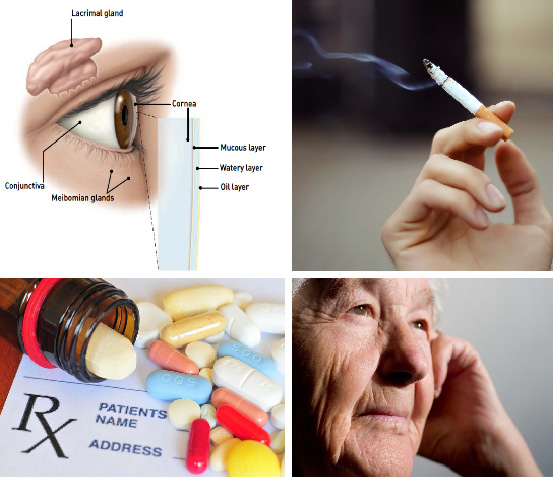

- Aging – with aging the tear production decreases thus people over 50 years are more likely to suffer from dry eye symptoms.
- Women seem to be more affected with this ailment as they go through hormonal changes as a result of their birth control medications, pregnancy or menopause.
- Inflammation of the eyelids due to bacteria. Blepharitis.
- Environmental factors such as allergens, dry air, chemical fumes, smoke.
- Vitamin A deficiency. Vitamin A is essential for a proper tear film.
- Contact lenses can also cause dry eyes.
- LASIK surgery can also cause dry eyes.
- Using preservative drops (such as glaucoma medication).
- Excessive consumption of alcohol.
- Collagen vascular diseases, rheumatoid arthritis, Sjogren’s syndrome can also have an adverse impact on the eye’s ability to produce tears.
- Prolonged usage of digital devices without blinking or frequent breaks.
- Various medications such as diuretics, anti-depressants, decongestants, anti-acne, oral contraceptives, and antihistamines can cause dry eye.
* Warning: Consult your physician before altering your administered medications.


